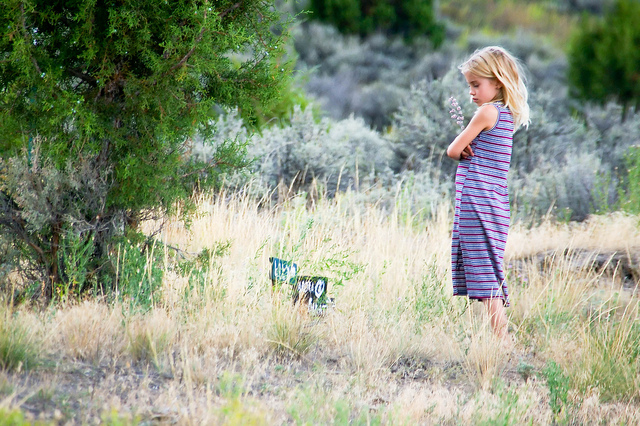This January will mark the tenth anniversary of my mother’s passing.
It has taken all this time to fully heal from the experience.
If my mother had passed over when we were on good terms, then I think it would have taken me much less time to recover. It’s taken me so long because I had to deal with all the wild emotions and thoughts that were connected to our relationship in that last year of her life before I could grieve her loss.
Far from feeling a sweet sadness at her funeral as I honoured her life, I felt irritated, angry, aggressive, numb and spiteful.
I think my emotions were intensified because I was five months pregnant at the time. I remember being at the cemetery and feeling a big “so what” attitude. My cousins would rub me on the back and say, “It’s okay; let it out,” but there were no tears of sadness in me to let out.
I was angry and (I’m sorry to say) I wanted to thump her—or at the very least shout at her.
I couldn’t bring myself to write on the card that accompanied her flowers. I had nothing nice to write so I wrote nothing. The blank card screamed a thousand words that I would never have the chance to say to her in person.
Why was I so angry?
When she became sick and realised she wasn’t going to recover, she decided to share all of her darkest, dirtiest secrets with me.
She admitted how she had told so many lies and manipulated the family for years, turning us all against each other. She cheated on my dad many times and had a child outside of her marriage. That child was me, and for some reason, she chose to tell me on my birthday: “Happy birthday love, by the way that’s not your Dad.”
It makes me laugh now when I think about it.
Five years previous to her confessions, I was been living in California. I quit my corporate job and started exploring mindful living. I was up for working on my baggage, and during my phone calls home to England I encouraged her to talk about things that needed to be said.
I suggested that if these things are not brought out into the open, they can sometimes eat away at you and destroy you.
She was not interested and would often hang up the phone. I wonder if that is really what made her ill. It’s not for me to judge, because I’m still so imperfect myself—but I do wonder.
So how do you cope when you lose a parent that you feel disappointed and angry with?
Honestly, I don’t feel I did it with much grace at all, but I made sure I worked through it, because I am committed to showing up in life—whatever the weather—and being healthy on all levels.
Here are some suggestions that helped me the most:
Not rushing the process, and letting it be. Whatever those feelings and thoughts are, let them come into full consciousness. No censorship.
Giving yourself what you need. If you need to sit around by yourself in pajamas for a day or two, then take that time to do that, but don’t allow yourself to stay there too long.
Praying. This appeals to some people and not others. It’s not a question of whether it works or not (it always does for me); it’s whether it brings you comfort.
Journalling. Let it bleed; let it all come out even if your full stops make the table vibrate as you pound your pen into the paper and scratch and tear the pages in frustration.
Seeking help if you need it, in whatever form that happens to take. For me that was psychological astrology, which gave me meaningful insights into family dynamics from a neutral perspective.
Choosing to move through the darkness. Although it’s helpful to look at it all, don’t linger there so long that it becomes a habit—a part of who you are. Consider what the whole experience can teach you, then let it go and move on, wiser and stronger.
Talking to people. If friends reach out to help you, to love you, welcome them in. Talk to family members if they are willing; you can help each other, because you understand what the other is going through.
Not watching The Waltons. It will make you feel worse! I am joking and that’s my real point here. Laugh at the crazy dynamics of intense family situations. The more I laughed at it all, the weaker the effect and disappointment was. It gave me enough space to separate from it and begin to heal.
I believe that we choose our parents before we incarnate and we choose them for specific reasons. Try to be open to what those reasons were; there are pearls of wisdom waiting for you there.
Reminding myself of this helped me to see that everything worked out exactly as it needed to.
Have compassion for the parent.
Only hurt people hurt other people. Only very broken people continually hurt and mess with people who love them dearly. They need compassion—not anger—directed at them.
That realisation was the greatest healer for me, because I started feeling compassion towards my Mum rather than anger. I came to see that she was very lost and broken and had been for years. I looked back and saw how certain unhealthy habits were being passed down through the family and that this had been going on for many generations.
I decided to break the cycle and set myself and my children free.
Today as I look back over the past ten years, I’m grateful for the whole experience because of the growth and strength that came from it. When I thought of her recently, I smiled and sent her love and said, “Goodbye for now sweetheart, thanks for the wild ride, see you on the other side.”
I can now let my relationship with my Mum rest in sweet peace.
~
Author: Carole Hills
Editor: Toby Israel
Photo: Flickr/William Wootton
~












Read 0 comments and reply